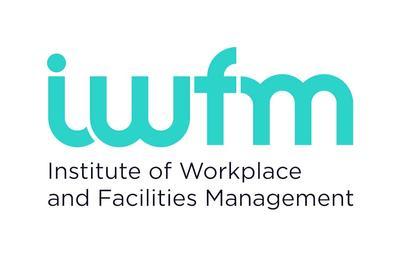Autumn Statement 2022: IWFM’s top four reflections
News
- General news
01 December 2022

National Living wage uplift:
With the cost-of-living crisis at the forefront of our minds, we welcome the government’s uplift of the National Minimum Wage. Our sector has many low-paid employees; often the same people who risked their health and their lives providing critical frontline support during the pandemic.
Even with the National Living Wage rising to £10.42 for those aged 23 and above, it will not meet the needs of the poorest households for whom prices are rising even faster.
IWFM is proud to support the voluntary ‘real Living Wage’, which is set by the Living Wage Foundation and based on actual living costs. Their current rates, updated in September in response to the crisis, are £10.90 across the UK and £11.95 in London with no age limit.
We are proud of our work in this area, and we urge other employers to do the right thing and support their people by becoming a Living Wage Employer. To support our members in this area, we have developed specific guidance on the benefits of paying a Living Wage, both for the organisation, and for individuals affected. Please read IWFM’s Living Wage guidance.
Energy and Environment:
IWFM welcomes the reconfirmed commitment to the Glasgow Climate Pact agreed at COP26, including a 68% reduction in emissions by 2030. Government intervention alone is insufficient. With building operations accounting for up to 27% of total global emissions each year, climate change is increasingly having an effect on building profile and subsequent management.
Energy efficiency is not yet driven through the built environment and our evidence shows that much can still be done through embedding the energy hierarchy: use less, generate your own, buy well. We therefore very much welcome the new energy efficiency taskforce that is due to be launched along with a new plan to bolster the UK’s energy resilience.
Facilities management professionals will play a critical role in the decarbonisation of the built environment and IWFM will support the role they play in three critical areas:
- Scope 3 standards: the lack of an industry-wide Scope 3 Framework has been a major barrier to driving down carbon emissions. IWFM is supporting SFMI’s Scope 3 Framework tool, which will not just help carbon reductions, but it will also show to the world, through the data collected, the importance of the operation phase and its considerable impact on climate change.
- We will continue to engage both with government and non-governmental stakeholders that are working on energy performance policies. All too often, the operational phase controlled by FMs is not taken into account, while this is where the greatest opportunity lies to change the dial in several areas; the scope for which buildings fall under any government-backed scheme, the extension to include Scope 3 in the supply chain for any measuring and the expansion of social value frameworks. While these are areas the profession can make a difference, government needs to step up its ambitions, both across commercial and residential buildings - no single building left behind.
- Tools: we are developing and updating several guidance pieces covering how to develop holistic net zero strategies, energy efficiency guidance and are updating our energy management guidance.
Levelling up:
With Round 2 of the Levelling Up Fund investing at least £1.7bn in local projects across the UK, there will be great opportunities for FMs within both Local Authorities and service providers to drive change through social value frameworks that will be used in the tendering process. Workplace and facilities management professionals play a critical role in helping local areas achieve greater value through contracts and their social value frameworks.
IWFM will continue to feed into existing frameworks, so that the measures remain relevant for today’s challenges, including the cost-of-living crisis and the climate emergency.
Skills and labour shortages:
IWFM welcomes the collaboration of Sir Michael Barber with the Chancellor and the Education Secretary to advise on skills reform. In addition, we welcome the Lifelong Loan Entitlement to be introduced from 2025. We hope however that any skills reform will not throw the baby out with the bathwater and will rather build on what is already there, to make sure that any existing barriers are being removed, rather than new systems and approaches needing many more years to embed. Collaboration is important, this needs to be extended beyond the Chancellor, to the Home Office, so that any skills policy adjustments are complemented by appropriate policy adjustments for immigration.
Professional Bodies like IWFM have a role to play, especially in the medium to long term for the structural upskilling piece and career of choice campaigns. In the short term, however, our members need the right labour available. This means in addition to ensuring short courses are available and have budget to take up, career of choice campaigns need to focus on immediate and short term conversion occupations and government can help industry better by ensuring they have more flexible immigration policies which are more joined up with the Department for Education. Especially the shortage occupation list, needs not just be responsive to UK PLC’s labour gaps (aka as barriers to growth), it needs to inform medium term skills policy.
